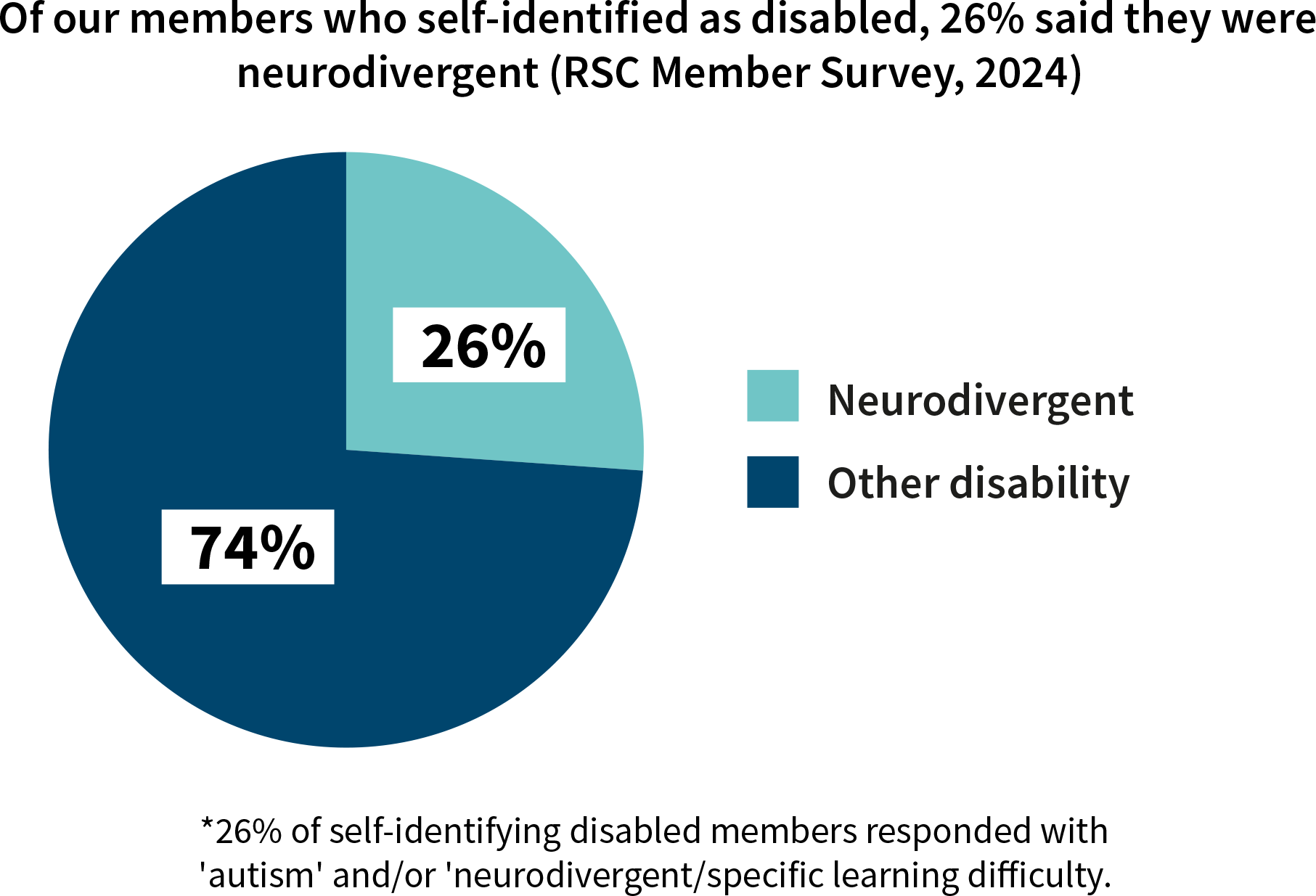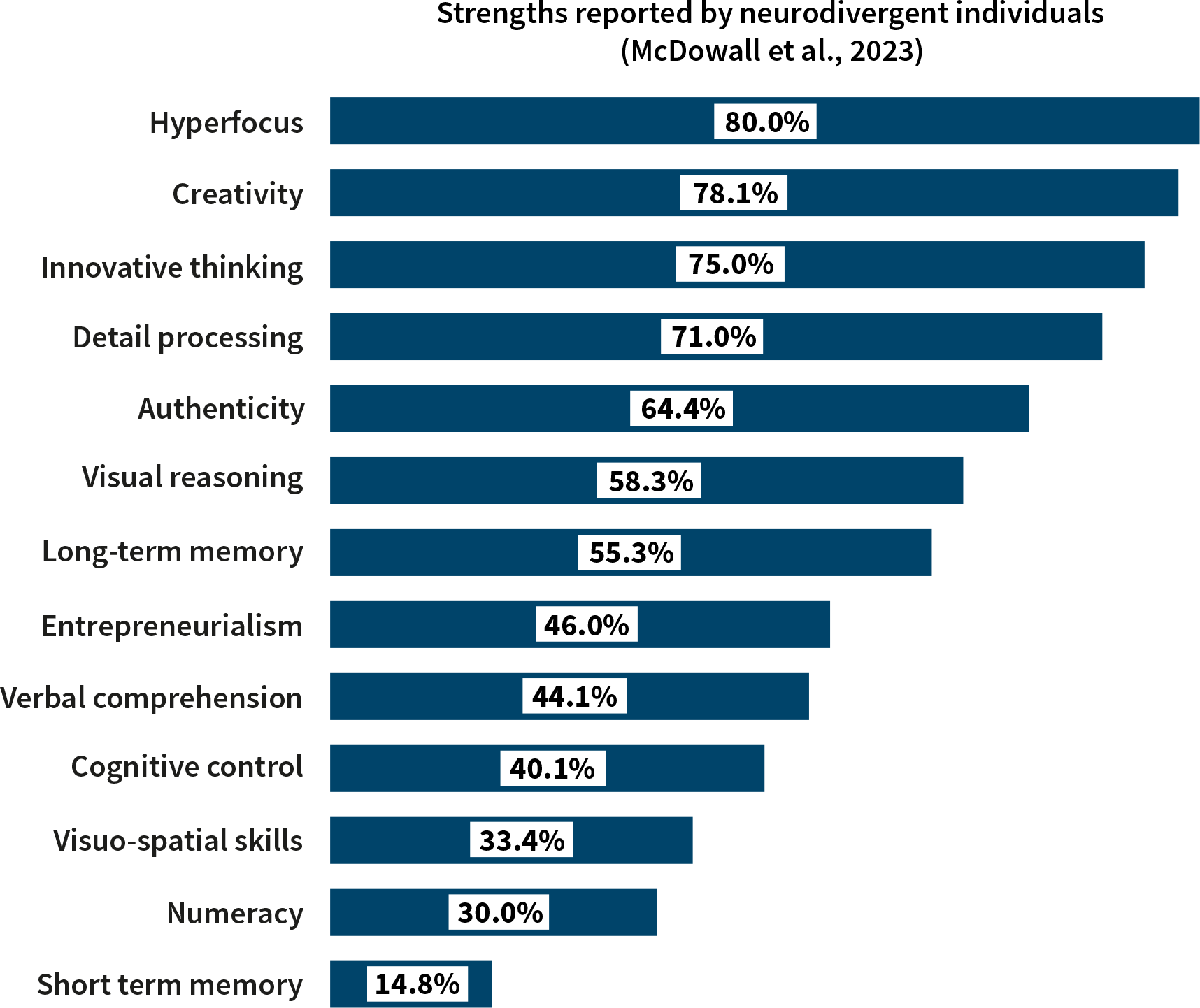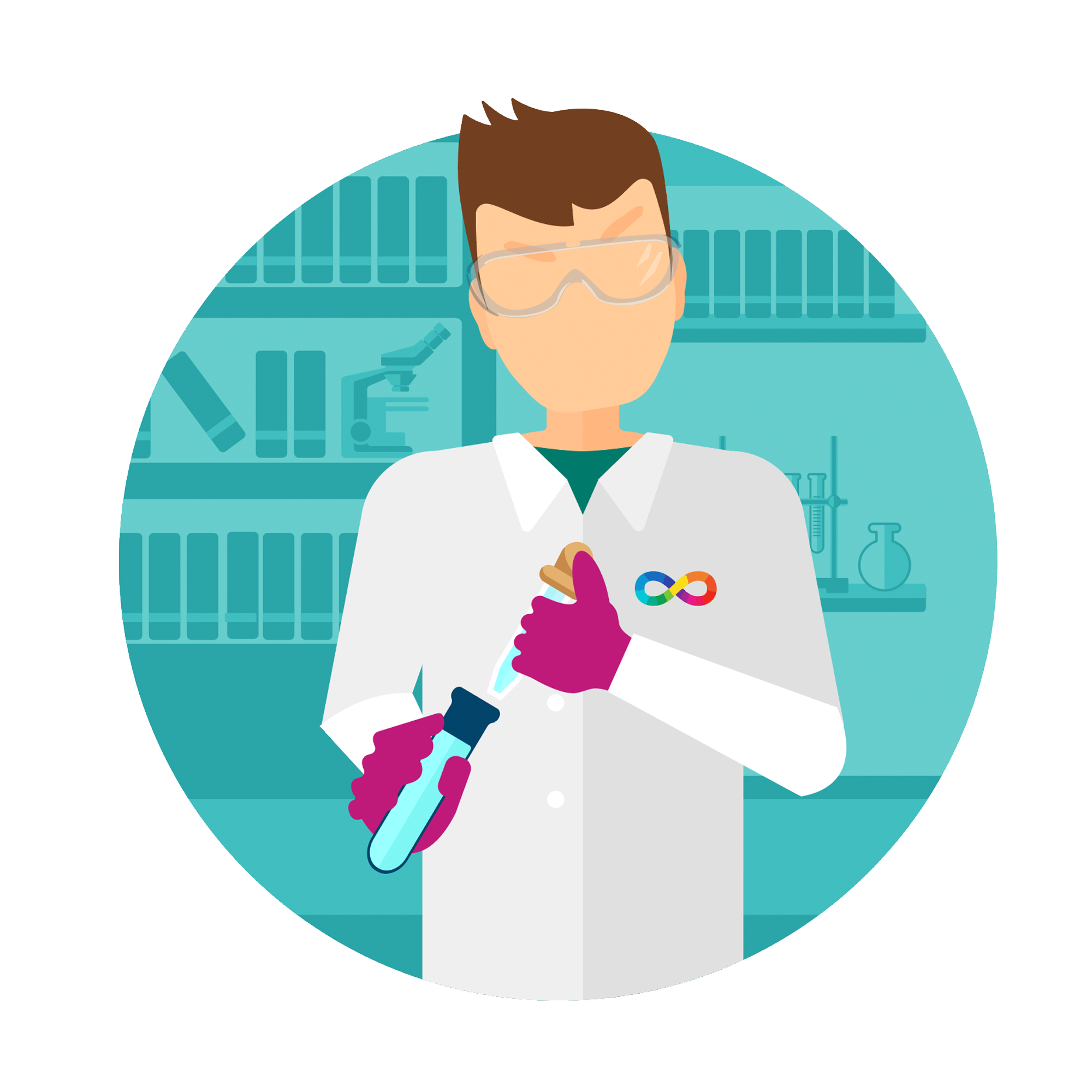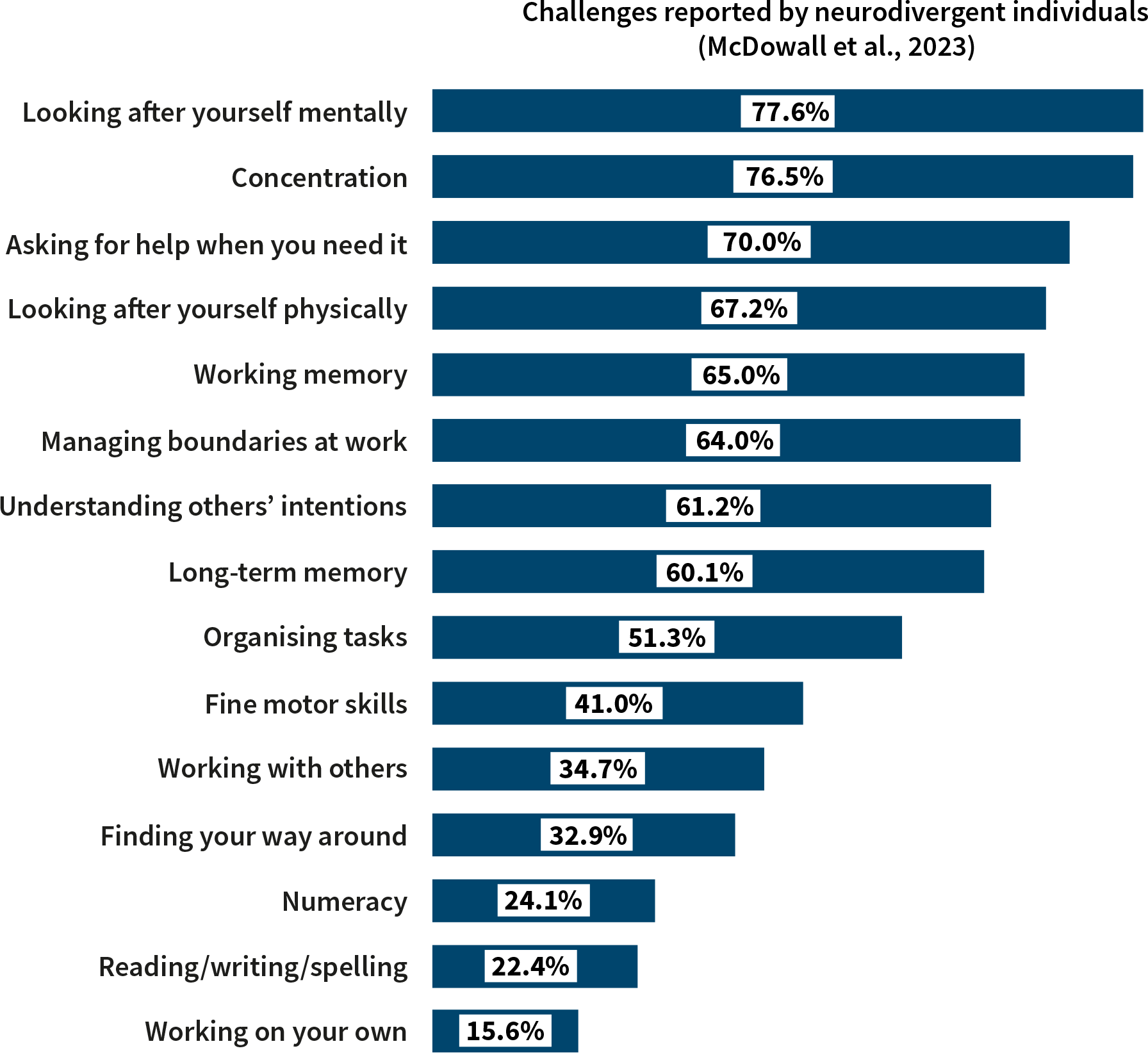Neurodivergent individuals make up a significant proportion of the chemistry community. Enabling neurodivergent chemists to utilise their unique strengths and ways of thinking and working entails embracing our community's neurodiversity, which is crucial for innovation and progress in the chemical sciences.
The neurodivergent population is often an untapped talent pool in the chemical sciences and beyond, due to the lack of inclusion and accessibility in education and employment.
Many environments and working and teaching practices are designed without consideration of neurodivergent individuals’ needs, which can lead to frustration, exclusion and mental health struggles. Simple adjustments, accommodations and understanding can break down these barriers and allow neurodivergent individuals to reach their full potential.
The strengths, challenges, and suggested support here are underpinned by research and data. However, it is important to remember that every individual has unique traits, needs and desired types of support. There are many different neurodivergent conditions with complex webs of traits and a high level of variance within each condition.
We intend to provide a deeper understanding of neurodiversity. We aim to inform and support a wide audience with resources and recommendations for neurodivergent individuals, managers, neurodivergent managers, departmental and organisational leaders and HR professionals.
The importance of neurodiversity in the chemical sciences
There are significant benefits for both the individual, the organisation and wider industry of embedding inclusion and accessibility for neurodivergent people in the chemical sciences. Research demonstrates teams which embrace and support their neurodivergent staff are more productive than those who do not. A diverse, neuroinclusive workforce leads to greater innovation, benefiting from fresh perspectives and ‘diversity of thought,’ and improving career progression and retention for skilled professionals and talented upcoming students.
In our 2024 member survey, over a quarter of respondents who self-identified as disabled said they were neurodivergent. We know that disabled chemists as a whole suffer from a ‘leaky pipeline’ effect and are underrepresented in more senior and established roles. With neurodivergent individuals making up a significant and increasing proportion of our chemistry community, the importance of tackling the barriers they face is clear. Inclusivity is key if talented individuals are to be retained.
How our Inclusion and Diversity Fund helped Jonny Berliner tell neurodivergent chemists' stories
Our Inclusion and Diversity Fund offers financial support to fund innovative products, activities and research projects aiming to foster inclusion and diversity in the chemical sciences.
Elements for Inclusion: neurodiverse chemistry
- Jonny Berliner was awarded funding to undertake a project that communicated some of his research findings
- He created Elements for Inclusion (pdf) a digital magazine telling the life stories of four successful neurodivergent chemists
- This illustrated the barriers they faced, the lessons they learnt in navigating them and how they succeeded as chemists
- The research demonstrated that chemistry is a discipline that requires diversity in cognitive approaches and thus diversity in neurotypes is extremely beneficial
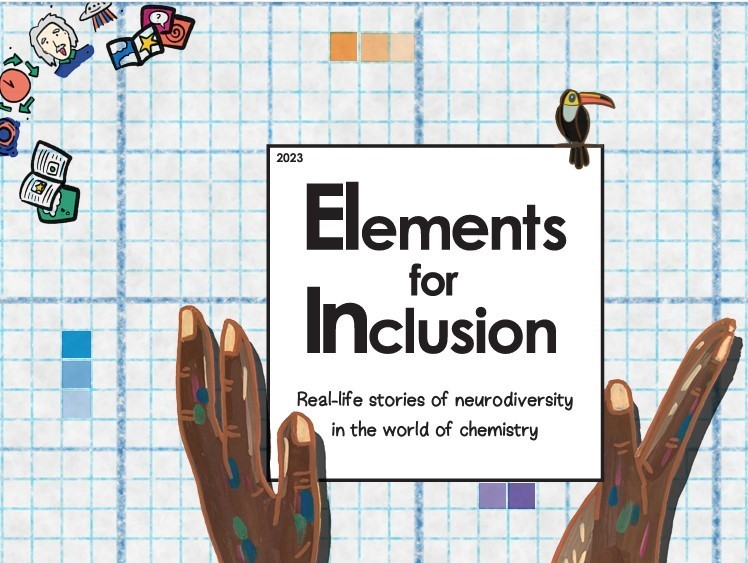
Creating a supportive environment for neurodivergent individuals from under-represented groups:
The importance of addressing intersectional concerns and recognising chemists as whole individuals with diverse experiences means that employers and institutions need to put inclusivity at the core of their ethos, rather than leaving it as an afterthought, one-off workshop or token effort.
- Create intersectional staff networks – many employee groups focus on singular protected characteristics, but intersectional networks can create safer spaces for individuals to share their experiences and support each other. For smaller workplaces which may not have multiple people with the same intersectional characteristics, employees can be signposted to external networks, or consider collaborating with similar institutions to form a joint network
- Provide opportunities for anonymous feedback and suggestions, allowing neurodivergent individuals to contribute and share their concerns without the fear of facing additional discrimination due to their intersectional identity
- Educate yourself, your team and organisation on the various unique barriers faced by minority groups. Share this webpage and the resources below
Intersectionality resources:
The following external links provide further information and support for considering intersectionality alongside neurodivergence:
- Black Neurodiversity offers resources and workshops
- ADHD Babes is a podcast discussing intersectional experiences
Contact us
- Tel:
- +44 (0) 1223 432203
- Email:
- Global inclusion


